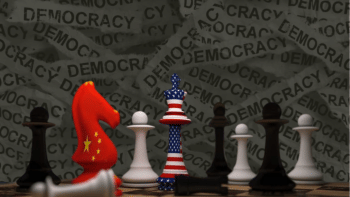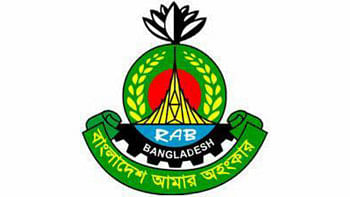A ‘tonic’ for our security forces?

Countries have been sanctioned by the US for various reasons – economic, political, diplomatic, human rights related, for alleged support to terrorists, etc. Apart from countries, the US has also sanctioned individuals or firms of other countries, on the grounds of violation of human rights, for breaking sanctions imposed on another country, or for links with certain organisations.
Unfortunately, Bangladesh finds itself in the unenviable list of countries whose senior officials or state agencies have come under US sanctions, for the first time in its history. As of November 2022, there are 22 such countries. The Rapid Action Battalion (Rab), along with seven others, were put under US sanctions for alleged violations of human rights on Dec 10, 2021. In fact, we came under the cosh from two US agencies – the US Department of Treasury, which imposed sanctions on Rab and seven of its current and former officers for alleged serious human rights violations, and the Department of State, which imposed sanctions on two persons, a former head of Rab and a former commanding officer of a Rab unit.
However, the oft repeated question regarding sanctions is, does it work? History tells us that sanctions are seldom effective. On the contrary, they prove counterproductive in most cases and hurt the common people more than the actual targets – the country's leadership, particularly when the sanction is against a country as a whole. The first recorded sanctions were imposed in 432 BC, when Athens denied traders from Megara entry to its harbours and markets. It was counterproductive in that it was a big factor in creating the Peloponnesian War.
One could well say that when the US talks about human rights in other countries, it itself is on slippery grounds, for its own record of human rights, particularly in its neocolonial role, is deplorable. The question we should ask ourselves now is whether the grounds on which the leading security agency and the sanctioned individuals stand are equally shaky.

Admittedly, our record in this regard is dismal. Tomes have been written about the many cases of extrajudicial killings, enforced disappearances and so-called crossfire deaths. The numbers – which, not unsurprisingly, have been contested by the administration – are alarming. Reportedly, Rab and other Bangladeshi law enforcement forces are responsible for more than 600 enforced disappearances since 2009, and nearly 600 extrajudicial killings since 2018. They are also accused of torture.
Let us take the last year of the current government's second term. In 2018, 466 people became victims of extrajudicial killings in Bangladesh, according to Ain O Salish Kendra (ASK). It was the highest number of extrajudicial killings ever recorded in a year in Bangladesh. The previous year's figure was 162, according to the same source. Out of those killed in 2018, nearly 300 were killed in the anti-drug operations carried out in the first seven months of the year.
It is unfortunate that security agencies have been used in a manner that has generated more fear in people's mind than confidence and faith in them. As the name suggests, security agencies, paid by the people, are supposed to provide security to the state, and only when people feel secure and safe can a state be secure. Unfortunately, the state's coercive arms have been mostly used to coerce people, particularly the political opposition, and of course, journalists. But Rab, one must admit, is not without its achievements, especially in its tackling of terrorism. But successes have been overshadowed by alleged violations of human rights.
Now to the question of whether the US sanctions have worked. Rights activists say that sanctions have "worked like a tonic". According to ASK, only four to five people have been killed in crossfire since, and a few people had disappeared, but they were also later handed over to the court or released subsequently.
The administration, though, is not willing to concede any correlation between the drastic decrease in extrajudicial killings or enforced disappearances, and the sanctions. One must admit, grudgingly though, that the sanctions have apparently had their effect, and the figures would substantiate the claim. I say this grudgingly to express my resentment and exasperation as to why it should take a "tonic" dispensed by another country on us, for us to work by the book.
I believe that instead of going into denial mode, as the administration is wont to do, the allegations should be taken seriously. Comments like, "there are no instances of enforced disappearance in our history… the victims of disappearance went into hiding or fled after committing heinous crimes" doesn't wash with the public. If that be so, how come some of them were handed over to the police later, and some of them returned home after being absent for some time, only to be inflicted with temporary amnesia? They couldn't recall anything about their disappearance.
The US sanctions are a slight on the country. And no self-respecting person can accept that security agencies should be driven by "tonics" from outside. While no one contests that extremist, of whatever hue they may be, must be neutralised, and the security agencies need to take all necessary measures for the sake of public safety, providing more security to the people should not mean fewer rights, or that the law enforcing agencies should act as judge, jury and executioner.
Brig Gen Shahedul Anam Khan, ndc, psc (retd) is a former associate editor of The Daily Star.

 For all latest news, follow The Daily Star's Google News channel.
For all latest news, follow The Daily Star's Google News channel. 










Comments